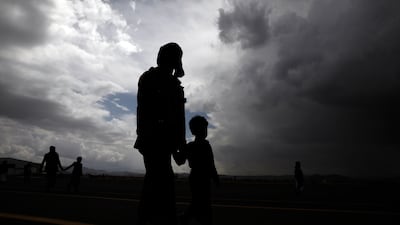Regional powers have it in their hands to drive Yemen peace talks, as the end of the eight-year conflict is now closer than ever, an expert familiar with current negotiations told a panel in London on Thursday.
The resolution to the conflict is in sight following a series of contacts — enabled in part by China — between Saudi Arabia and Iran, said Farea Al Muslimi, research fellow at Chatham House who recently participated in meetings with Saudi and Gulf Co-operation Council officials on the prospective peace talks.
The developments can be interpreted as a demonstration that the US and UK are losing influence in Yemen, added Mr Al Muslimi.
“To my knowledge, the Americans were informed a day before,” he said. “I don’t think the British were involved in this at all.”
Saudi Arabia proposed peace talks between the Houthis and the Yemeni coalition government in April, a year after a UN-mediated truce.
Houthi leaders and Saudi officials met for the first time in public in Sanaa earlier this month. This was followed by a prisoner exchange of almost 900 detainees.
Though nothing has been put in writing yet, the potential peace deal — which will be negotiated over two six-month ceasefires — is likely to involve a “transition” of two to five years, followed by a referendum on the question of southern Yemen, Mr Al Muslimi said.
The first ceasefire will be dedicated to economic incentives, paying government salaries, support for the Central Bank of Yemen, opening roads and widening ports and airports. Political negotiations will take place will then take place during the second ceasefire.
Saudi Arabia’s priority, said Mr Al Muslimi, is to have a secure border with Yemen.
“They do not want to negotiate borders,” he said.
He added that Saudi Arabia will not want to be the only country paying for Yemen’s reconstruction — which the Houthi’s estimate will cost $30 billion.
The emphasis instead is on looking to develop approaches that have been applied by international development donors in conflict zones and fragile states.
“They’re trying to learn the European ways of using aid as a diplomatic tool,” said Mr Al Muslimi.
The peace talks reflect Saudi Arabia’s desire for stability for its southern neighbour, he added.
War fatigue is another contributing factor for all sides.
“There are less and less illusions about a possible military victory,” said Mr Al Muslimi, with the Houthis losing 26,000 fighters in Mareb in one year alone.


